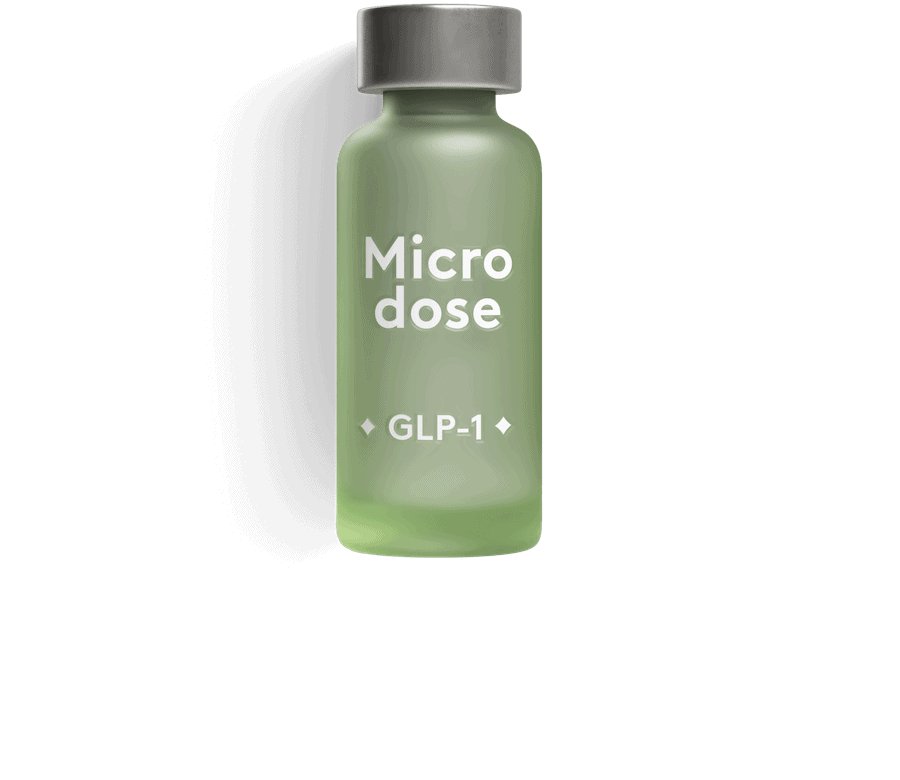If you are looking for a way to improve your overall mental and emotional health, meditation is one of the top ways to do so. During the past few years, meditation has become incredibly popular. Even though it has been a staple of Eastern medicine for centuries, it has now become more popular in the west as well.
While the emotional benefits of meditation have been covered extensively, there are a number of benefits for the physical body that this gentle exercise can provide. With all of this in mind, it is essential to take a closer look at some of the physical benefits of meditating.
Meditation is the normal process of focusing your mind, which will lead to the dissipation of negative energy while you concentrate on positive thoughts.
If you are looking to improve your physical health, it is obviously important to see a healthcare provider regularly. On the other hand, meditation can also be used to increase awareness of yourself, your mind, and your body.
Meditation Can Help Reduce Stress

One of the first benefits of meditation that you will enjoy is stress reduction. Without a doubt, this is one of the most common reasons why people try meditation in the first place.
Today, we live in a more demanding world than it has ever been in the past. Thanks to technology, we can work from home, go to school from the living room, and handle many errands virtually.
On the other hand, this also means that we can’t disconnect. Being constantly connected to everyone, and everything can increase the amount of stress we feel.
Some of the most common causes of stress include:
- “Wasting” time, like sitting in traffic, which may make you late for a personal or professional obligation.
- Constant financial worries include mortgage payments, rent payments, student loan payments, and car payments.
- Losing your job.
- Failing a test or class.
- Getting arrested or otherwise dealing with legal problems.
- The death of a family member or friend.
- Not being able to finish everything you have to do in a day.
When you are feeling stressed, the level of cortisol in the body increases. This is one of the most prominent markers of stress, and it can lead to chronic inflammation.
Even though occasional stress is a part of life, chronic stress can lead to long-term problems. For example, chronic stress can lead to depression, anxiety, sleep issues, and increased blood pressure.
Fortunately, meditation can help you control your stress levels. For example, one study took a look at individuals who performed mindfulness meditation for approximately two months. At the end of the study, the researchers measured the individual levels of inflammation. The research study revealed that individuals who regularly perform mindfulness might reduce the inflammatory markers typically associated with stress.
Stress can make weight loss harder to achieve. Let Noom help you reach your goals by supporting your whole body – not just your diet.
What Are the Effects of Stress on the Body?
If you feel stress regularly, there are several impacts you may notice. Stress can have many adverse health effects. Let’s take a look at a few of the issues stress may cause:
- Stress may make your headaches worse. If you suffer from tension or migraine headaches regularly, you may notice that these come more frequently and with greater severity.
- Stress can also increase the production of stomach acid. This may lead to heartburn. If you already suffer from gastroesophageal reflux disease or GERD, you may notice that the symptoms are getting worse.
- Your respiratory rate often increases when you feel stressed. You may start to hyperventilate and notice that you are feeling short of breath.
- Chronic stress can lead to increased blood pressure. This can elevate the chances of a serious cardiovascular event taking place, such as a heart attack.
- Stress can increase your chances of developing a serious mental health issue. This includes depression and anxiety.
- If you suffer from chronic stress, you might have trouble falling asleep or staying asleep at night. This can cause you to wake up the next day feeling irritable.
- Stress can also weaken your immune system. You might notice that you are more vulnerable to infections and could develop colds more frequently. If you have a compromised immune system, you may develop more serious infections.
- When your body feels stress, it believes that it has to respond to something. Therefore, it is going to mobilize blood sugar, emptying it into your bloodstream. This could cause your blood sugar levels to go up, increasing your chances of developing diabetes.
These are just a few of the many effects that stress can have on your body. Ultimately, if you are looking to reduce the stress you feel regularly, it is a good idea to meditate. Meditation can reduce the symptoms of stress, including some of the markers of chronic medical conditions. Even though it may take some time for you to notice a difference, regular meditation can help you enjoy all of the benefits of stress reduction.
Rx weight loss, the right way, with Noom
Get access to prescription weight loss medication with Noom.Meditation Can Increase Emotional Awareness
Meditating regularly can help you increase your emotional awareness. By increasing your self-awareness, you become the best version of yourself. For example, meditation aims to help you understand your inner self better. That way, you can better relate to those around you.
Certain forms of meditation teach you to recognize thoughts that are self-deprecating or self-defeating. Then, you can gain a greater awareness of your thought patterns and habits. Ultimately, this may be able to help you steer your thoughts toward more constructive patterns.
For example, one study took a look at more than 150 individuals. These individuals were encouraged to practice mindfulness meditation regularly. During the study, a mindfulness meditation practice was delivered through a mobile application for about 14 days. The results showed that individuals who meditated regularly experienced increased social contact with others than the control group.
When you meditate regularly, you increase your emotional health awareness while also boosting your self-confidence. When you are more confident in your skills, your problem-solving skills are going to improve. Instead of giving up when you cannot come to the right answer immediately, you get more creative.
As a result, you may find that you can work through difficult challenges with greater accuracy. This leads to a positive feedback loop, leading to more self-confidence, resulting in better outcomes. You might even realize that you can accomplish goals that have been escaping you if you meditate regularly.
In the end, certain types of meditation may be able to help you get to know yourself better. This is an important starting point if you are looking for ways to make positive changes in your life.
Meditation as an Anxiety Treatment

Another significant benefit of regular meditation is that this can help you control your anxiety. Anxiety is a major problem that countless people deal with regularly. Here are some of the most common causes of anxiety:
- Some people get anxious in response to specific situations, which are usually referred to as phobias.
- Some people suffer from social anxiety, anxiety that develops in social situations, and with family members, friends, and colleagues.
- Other people suffer from a general level of anxiety in the background, usually referred to as Generalized Anxiety Disorder.
- There are also situations where people with anxiety may develop panic attacks, which usually lead to rapid heart rate, shortness of breath, and an impending sense of doom.
Everyone must take a well-rounded approach to the treatment of anxiety. In addition to seeing a professional therapist, meditation can help people control their anxiety as well. For example, there was a meta-analysis that included close to 1300 individuals. The study found that individuals who meditated regularly were able to control their anxiety levels better.
Another study echoed the same results. Close to 50 people, including individuals who suffered from chronic pain. The individuals in the program completed a two-month course involving regular meditation. These individuals noticed reduced anxiety and depression levels for more than 12 months following the program.
Even though the exact relationship between anxiety and meditation is unclear, medical researchers believe that this has to do with altered levels of cytokines, which are specific cellular signals that flow to the bloodstream in response to certain situations.
Even though many cytokines are positive and allow us to fight bacterial and viral infections, some cytokines are released in inappropriate situations, leading to anxiety development. Meditation can help people control cytokine levels, managing anxiety in the process.
Anxiety is one of the most common mental illnesses. With Noom’s psychology-backed program, you’ll be able to reduce your anxiety around food and exercise.
What Are the Effects of Anxiety on the Body?
Even though everyone suffers from anxiety from time to time, chronic anxiety can have a significantly detrimental impact on someone’s overall quality of life. Even though many people associate anxiety with behavioral changes, there are physical impacts that anxiety can have on the body.
Let’s take a look at some of the most significant impacts anxiety may have:
- One of the most significant impacts of anxiety is that this may cause you to develop an impending sense of doom. If you have an always pessimistic outlook on the world, you may not be able to take advantage of the opportunities in front of you.
- Anxiety can also lead to a pounding heart rate. You may notice heart palpitations. Even though this is closely associated with panic attacks, they can happen at any time.
- Anxiety can cause you to develop more frequent headaches. This includes both tension and migraine headaches. You may notice that these come on more frequently and with greater intensity.
- Nausea and vomiting are two of the most common physical side effects of anxiety. If you suffer from anxiety regularly, this upset stomach can cause you to avoid certain foods and drinks. This may even lead to unhealthy weight loss.
- Anxiety can hurt someone’s libido, as well. This can harm your relationship with your partner.
- Anxiety can lead to breathing issues. When you suffer from anxiety, you tend to take short, rapid breaths. This can impact your overall level of oxygen in the blood. It can get even worse if you are having a panic attack.
Ultimately, anxiety can have a lot of detrimental impacts on our physical and emotional health. Some treatment will come via a therapy team, but you can also choose to practice self-healing. That is where meditation can be helpful.
Meditating regularly can go a long way toward mitigating the impact that anxiety has on the body. When people can control their anxiety through meditation, they may avoid the side effects.
Meditation Strengthens the Mind-Body Connection
Meditating regularly will also help you strengthen the connection between your mind and body. Even though many people talk about a mind and body connection when they are lifting weights, this connection is important in all areas of your life.
For your body to do what it is supposed to do, your mind must communicate with it effectively. The only way you will do this is if you are focusing your mind. Meditation can be helpful here.
When you start off meditating, you might not notice any difference at all. On the other hand, similar to working out at the gym, the more you meditate, the stronger this connection between your body and mind will become. As you meditate, you need to focus on each area of your body with purpose.
Start with the top of your head and work your way down. Gradually, you should become more in touch with each part of your body. For example, you may want to practice telling individual parts of your body to relax as you meditate. As you feel your body respond to these commands, you know that you are strengthening the connection.
If you exercise regularly, you may notice that you can push yourself harder at the gym after regular meditation sessions. You might also see that you can reduce the chances of suffering an injury because the connection between your mind and body has been strengthened.
Meditation Can Reduce Memory Loss

If you want to protect your mind as you get older, meditating regularly may help. Evidence shows regular meditation might help reduce memory loss typically associated with aging. To keep your mind young, you need to increase your mental clarity, and that is precisely what meditation will provide.
For example, one specific medical study shows that individuals who meditate may experience improved attention, memory, and mental agility. Specifically, this study took place in people who were of advanced age. In other words, individuals who are at risk of developing age-related memory loss.
Evidence also shows that meditation can help people who suffer from memory loss due to dementia. Even though Alzheimer’s is the most common form of dementia, there are other types of dementia, such as frontotemporal dementia and vascular dementia.
If you are looking for ways to avoid memory loss development as you get older, then it is a good idea for you to start meditating. By strengthening your mind, you will improve your mind’s ability to withstand the wear and tear of getting older.
Meditation Can Improve Your Attention Span
Research shows that meditation can help improve your attention span. Many people have trouble remaining focused on one thing among everything they have to do during the day.
Technology has led to an era of instant gratification. Therefore, many people’s attention spans are simply not as long as they once were. If this sounds like you, then meditation might be a way for you to help you lengthen your attention span.
A study involving people listening to a tape that led them through meditation sessions regularly was performed. After the meditation sessions, the individuals were asked to complete a specific task. Compared to another group that did not meditate, the individuals who meditated using the tape experienced longer attention spans. As a result, they were able to complete the task more quickly.
If you would like to lengthen your attention span, you may be under the impression that you need to meditate for hours without end. Fortunately, this is not the case. Even if you can only meditate for a few minutes per day, this may benefit you. For example, one study asked individuals to meditate for 13 minutes per day. After eight weeks of meditating, the participants experienced longer attention spans and improved memories.
If you have trouble focusing at school or work, you are likely thinking about ways to lengthen your attention span. One of the ways that you can do this is to start meditating. Even though it may take a few weeks for you to notice the results, meditation goes a long way toward helping you complete everything you have to do each day.
Today’s attention spans are shorter than ever. With meditation, you can improve your focus and get more done — leaving plenty of time for exercise with Noom.
Meditation May Lower Heart Rate and Blood Pressure

Meditation can help you lower your heart rate and blood pressure. Your heart rate usually goes up in response to stressful situations. Furthermore, your blood pressure may rise, as well.
Even though you feel your heart racing, you probably will not sense when your blood pressure goes up. Unfortunately, if your blood pressure remains high for an extended time, this can lead to serious cardiovascular and kidney complications.
Fortunately, meditation can help you calm down. A meta-analysis that took a look at a dozen studies found that meditation can help people reduce their blood pressure. The effects of meditation are more pronounced among older individuals who tended to have higher blood pressures, to begin with.
Therefore, the higher your blood pressure is, the more significant the drop you will experience if you can meditate regularly. Along with diet and exercise, meditation can significantly reduce blood pressure and improve cardiovascular health.
These studies also show that individuals who meditate regularly will experience long-term reductions in blood pressure. This can go a long way toward helping avoid the complications associated with chronic hypertension. It can also help reduce stress on your heart, improve your blood vessels’ health, and prevent long-term cardiac disease development.
Meditation as a Treatment for Addiction
One of the critical applications of meditation is that it may help people combat addiction and substance abuse disorder. Addiction is one of the most pressing issues facing the healthcare system today.
Addiction can impact anyone at just about any time. Some of the most common culprits for addiction include prescription medications, recreational drugs, alcohol, and nicotine. The good news is that meditation can help people overcome addictive behaviors and tendencies.
When you meditate regularly, you will increase your level of mental discipline. Therefore, you build the strength to break the tendencies you have developed as they relate to addiction. Many research studies show that meditation can help people figure out ways to redirect attention that used to be paid toward their addictions. They can better manage their emotions and impulses. When people can better understand the root cause of their addictive behaviors, they gain the power to break free from them more easily.
Another research study that took place recruited 60 people. These individuals were receiving treatment for alcohol use disorder. The participants were asked to participate in transcendental meditation. Three months after the study was completed, individuals who participated in this meditation session experienced lower levels of stress, fewer alcohol cravings, and better addiction treatment results.
Ultimately, meditation aims to help you develop the mental awareness you need to manage triggers related to addictive behaviors. One of the biggest reasons people have trouble maintaining their sobriety is that they cannot deal with unwanted impulses. Meditation can help you develop the mental strength and fortitude to withstand these impulses. That way, you can recover from addiction, redirect impulses as they happen, and improve your overall quality of life.
Meditation Can Reduce Chronic Pain

One of the most important applications of regular meditation is to help treat chronic pain. Chronic pain is one of the most common causes of disability in modern society.
The reality is, your perception of pain is inextricably linked to your state of mind. Pain signals leave your body areas, travel to your brain, and are interpreted there as pain. If you can control your state of mind, you might find that you can deal with chronic pain more easily.
There are numerous reasons why someone may suffer from chronic pain. Let’s look at some of the most common causes:
- Some people have a chronic medical condition that causes them to experience relatively low background pain.
- Other people may suffer from nerve damage that impacts how their body interprets nerve signals.
- Some people may have suffered a serious traumatic injury in a car accident, a slip and fall accident, or even an accident at work.
There have been numerous studies performed on chronic pain as it relates to meditation. One comprehensive review covered close to forty studies. The complete review concluded that individuals who meditate regularly could improve their quality of life by reducing chronic pain and decreasing the symptoms of depression that usually accompany chronic pain.
Incorporating a mindfulness program into a pain management strategy can prove to be effective as well. After two years of mindfulness meditation practice, one study found that participants experienced a better mental quality of life, decreased anxiety levels, and improved pain acceptance. More research found that mindfulness meditation practice can reduce pain in both clinical and experimental settings, showing the importance of meditation for chronic pain.
Chronic pain can make it difficult to find the motivation to exercise. With Noom, you can get a workout plan that helps soothe your chronic pain.
What Are Some Other Treatment Options for Chronic Pain?
When it comes to chronic pain, there are numerous treatment options available. Unfortunately, one of the first-line treatment options for chronic pain involves opioid and narcotic medications, associated with serious side effects that may include addiction.
These medications are only meant to be used on a short-term basis, so it can be important to check in with a healthcare provider regularly while using them.
Individuals who suffer from chronic pain may consider enrolling in a physical therapy program. Physical therapy can improve the strength of the muscles, ligaments, and tendons, providing extra support for areas of the body that may suffer from chronic pain.
Yoga can also be helpful as a treatment option for chronic pain. Yoga can increase strength and flexibility, improving the body’s ability to deal with regular wear and tear. Some research shows that yoga can have physical, emotional, and cognitive benefits for those who experience chronic pain.
Massage therapy is one of the most important treatment options for chronic pain. Massage therapy can target the body’s muscles and nerves, calming them down. This can dull the pain signals coming from some regions of the body.
All of these treatment options can go hand-in-hand with meditation. Everyone must take a well-rounded approach to the treatment of chronic pain. Meditation can be an important part of helping people improve chronic pain management and overall quality of life.
Meditation Can Help You Sleep Better at Night

Countless people struggle to fall asleep at night. Sleep is important because it provides the central nervous system with the chance to recharge and rejuvenate following a busy day.
Sadly, many people have trouble falling asleep at night. Other people may have difficulty staying asleep. One way people can sleep better at night is to calm the mind and body using meditation techniques.
One study took a look at individuals who had insomnia, which is a disorder that causes people to have trouble achieving healthy sleep. Compared to individuals who do not meditate regularly, the study found that individuals who participate in mindfulness meditation can fall asleep more quickly and stay asleep longer.
Ultimately, meditation is important for your sleep habits because it can help you calm your mind and release tension before you crawl into bed. One of the reasons you may have trouble falling asleep at night is that your mind is still racing when you get into bed. Then, your muscles still feel tense, causing you to have trouble relaxing. Meditation can help you undo all of this before you get into bed. Then, when you crawl under the covers, you may find that you can fall asleep quickly.
Combine regular meditation with Noom to improve your overall health and well being.
The Bottom Line on Meditation
If you are looking to improve your overall quality of life, one answer is regular meditation. When you perform something for the first time, it is important to start low and go slow. This includes meditation.
Like other body muscles, you need to gradually exercise your mind to take advantage of everything that meditation has to offer. Consider starting with short five or ten-minute meditation sessions in a quiet place. Then, if you meditate regularly, you will increase the length of time you meditate.
Also, figure out when you want to meditate. Some people like to meditate when they first get up in the morning. Others like to relax in meditation in the evening when they get back from work.
The important thing is that you need to figure out exactly when you want to meditate. If you go through your day, assuming that you will have a few free minutes somewhere, you are never going to sit down and meditate.
Instead, be intentional about your meditation routine. When you set aside time intentionally, you have a greater chance of getting your meditation sessions in. Then, you will enjoy all the physical benefits that meditation has to offer.
Why you can trust us
At Noom, we’re committed to providing health information that’s grounded in reliable science and expert review. Our content is created with the support of qualified professionals and based on well-established research from trusted medical and scientific organizations. Learn more about the experts behind our content on our Health Expert Team page.





















 Meaghan Cameron
Meaghan Cameron
 Noom Team
Noom Team

 Shoshana Fishbein
Shoshana Fishbein
 Melissa Kay
Melissa Kay
